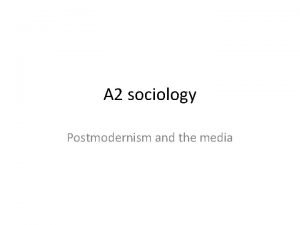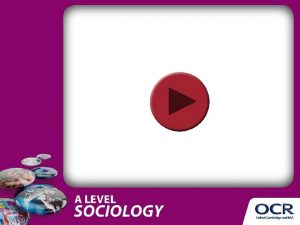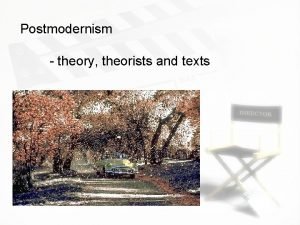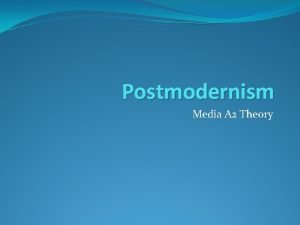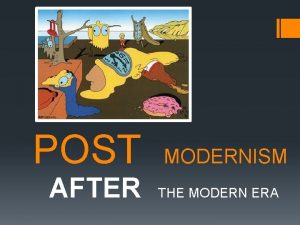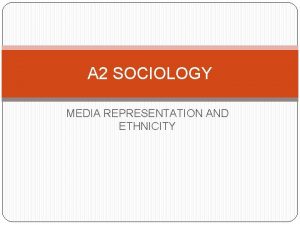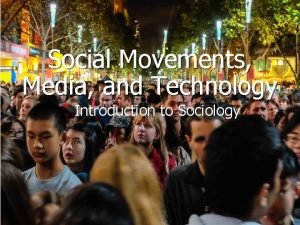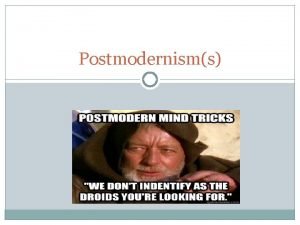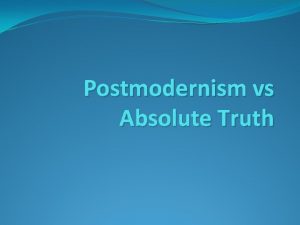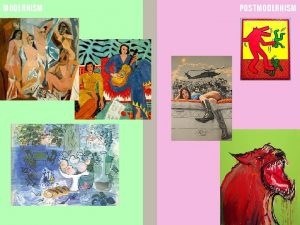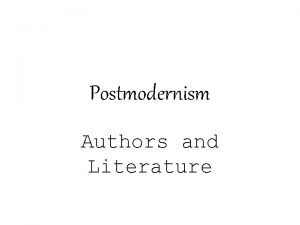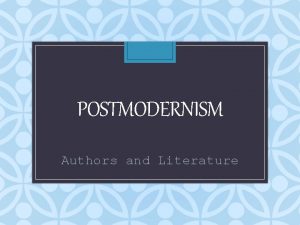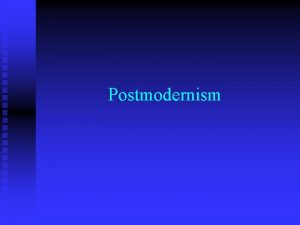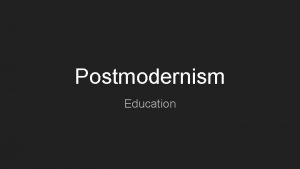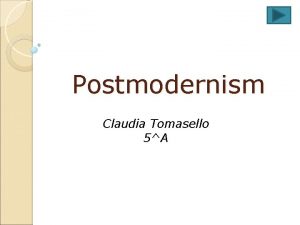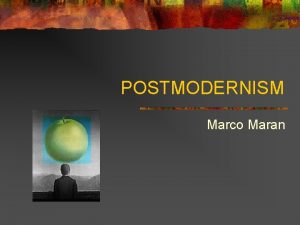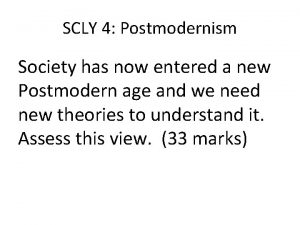Postmodernism and the media A 2 Sociology SCLY









- Slides: 9

Postmodernism and the media A 2 Sociology SCLY 3

Remind yourself what is meant by postmodernism. • • • Meta narratives – no one true reality Fluidity of meaning Pick and mix society Hyperreality Simulacra

A postmodernist view…in short! • The rise of the new media is seen by some as part of the change from a modernist to a postmodernist society. • Key argument – we live in a world that is shaped by the media. Media images and representations have become our reality and computer technology has created a virtual reality which has replaced real-life. It has become more influential than family, religion, social class, nationality etc • Key Sociologist – Baudrillard – we live in a media saturated society where media images distort and dominate the way we see the world.

Example http: //www. bbc. co. uk/news/business 21765737 Horsemeat scandal 'changing shoppers' habits‘ What other examples can you give of the media changing the way we think about something?

Baudrillard • Our view of the world is distorted and sanitized by the media. • War and conflict has been shown as a media constructed spectacle so much so that we are unable to distinguish the reality from the Hollywood portrayal of war or the images we see in video games. • This distorted view of the world is called HYPEREALITY with the media presenting a SIMULACRA – artificial images or reproductions of real events viewed simultaneously around the world.

Garrod (2004) • • Media shows such as… I’m a celebrity get me out of here Wife Swap Big Brother • All blurring the distinction between reality and hypereality. • All of these programmes stem from an artificial base, without the media the celebrities wouldn’t be in the jungle, wives would not be swapped and the artificial environment of the Big Brother House would not become “real” for the audience and contestants.

Strinati (1995) • Emphasises the importance of the mass media in shaping consumer choices. • Media messages from all angles increasingly influence the was we define ourselves. The mass media created pressures and desires to consume and many of us define ourselves in terms of media imagery. • Media enforced trends become more important than the content or quality of the product, the visual effects in films more important than the plot and the ever increasing number of people who are famous for no reason at all apart from being made celebrities by the media.

Summary and critique • The media has created an uncertain world – do we know what to believe? • We identify more with the media images than we do with our own daily experience – are we more likely to identify with the communities of those in the soap operas than those in our own community? The mass media is destroying our local communities and replacing them with ‘virtual communities’. • BUT…do postmodernists assume that we approach the media with no prior experience of our own? Can we not ignore or interpret media images? Are factors such as are gender, class, ethnicity, our life experiences, friends, peers, education more likely to determine how we select, interpret and respond to the mass media? Have a look at the sheet – what are the key issues/concerns with Postmodern view of media?

Examplar essay • What other info can you extract from the essay that you feel is relevant for Post modern views of the media. • AO 1 • AO 2.
